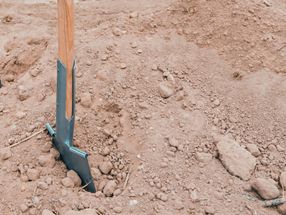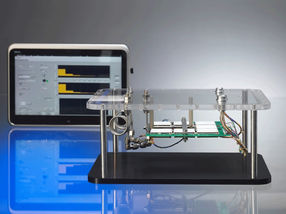QIAGEN dramatically ramping up global production capacity for RNA extraction kits for use in detection of SARS-CoV-2 coronavirus
QIAGEN announced plans to dramatically ramp up global production capacity of RNA extraction kits that are used as part of workflows around the world to detect nucleic acid from SARS-CoV-2, the novel coronavirus that causes Covid-19.
QIAGEN has historically allocated global production capacity to manufacture RNA nucleic extraction reagents to supply about 1.5 million patient tests on a monthly basis. Now QIAGEN is ramping up production capacity for these reagents to support a level of more than 6.5 million patient tests a month by the end of April 2020 and over 10 million patient tests a month by the end of June 2020. A significant capacity expansion project is underway at sites in Europe and the United States to reach more than 20 million patient tests on a monthly basis by the end of 2020 to support the response to this global public health crisis.
QIAGEN also expects to receive CE-IVD marking in the coming days for its newly developed QIAstat-Dx Respiratory SARS-CoV-2 Panel test to be sold as an in vitro diagnostic (IVD) for the detection of SARS-CoV-2. Discussions are continuing with the U.S. Food and Drug Administration (FDA) for an Emergency Use Authorization (EUA) authorization of this panel. QIAstat-Dx was the first syndromic testing platform selected for development through the U.S. Department of Health and Human Services' Office of the Assistant Secretary for Preparedness and Response (ASPR) Biomedical Advanced Research and Development Authority (BARDA) with a grant of $598,000 to support development activities.
“QIAGEN teams are working 24/7 to address the unprecedented demand for reagents that has emerged to enable testing for COVID-19 in terms of RNA extraction, as well as for production of tests for use on the QIAstat-Dx syndromic testing system,” said Thierry Bernard, Interim CEO and Senior Vice President, Head of the Molecular Diagnostics Business Area, at QIAGEN. “We continue to work with our customers around the world to assess their flexibility, timing and quantity needs to support shipping of RNA extraction reagents to the most critical areas. We are determined to help public health authorities and medical staff around the world respond quickly to those who are ill and prevent the spread of this disease.”
Other news from the department manufacturing
Most read news
More news from our other portals
See the theme worlds for related content
Topic world Extraction
Extraction is a fundamental process in the chemical laboratory that enables specific components to be isolated and concentrated from a mixture. Whether it's extracting active ingredients from natural products, removing impurities from synthesis products, or preparing analytical samples, extraction is a key step in achieving precise and efficient results in chemical research and analysis.

Topic world Extraction
Extraction is a fundamental process in the chemical laboratory that enables specific components to be isolated and concentrated from a mixture. Whether it's extracting active ingredients from natural products, removing impurities from synthesis products, or preparing analytical samples, extraction is a key step in achieving precise and efficient results in chemical research and analysis.




















































